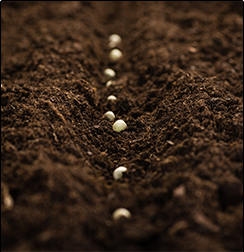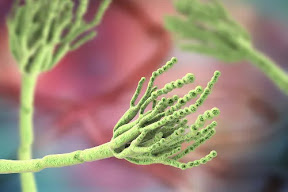Applications of Beneficial Soil Microorganisms
Soil microorganisms are a very comprehensive niche to study. They are known among farmers for the repair of contaminated soil, the production of fungicides and bio pesticides, and other agro-based purposes.
As soil microbes are small in their structure, sometimes they are visible or invisible to our naked eyes. We can see them by using optical microscopes and many electronic gadgets.
There are billions of soil microorganisms available in one gram of soil. Some of them are bacteria, fungi, actinomycetes, algae, and protozoa.
Their importance in nitrogen fixation and maintaining soil fertility keeps at bay many pathogenic diseases, among many others. This guide will give you insight into these applications in detail.
Biofertilizers are a microbial strain that is beneficial for colonizing the rhizosphere and making essential elements like phosphorus, nitrogen, water, and many others available.Create Good Soil Structures
Soil microorganisms have their own life cycle. They exchange many gases, including carbon dioxide and oxygen, with the surrounding air. This activity is beneficial to their metabolism and enables them to secrete organic acids that contribute to the soil particles.
The building of a large aggregate structure, consisting of organic composition, biomass, and the life activities of soil microbes, plays a vital role in the creation and development of soil.
Decompose Organic Matters
Soil microorganisms can serve as decomposers by decomposing minerals and the metabolites of soil microbes. They are also behind promoting the dissolution of insoluble substances in the soil, which improves its fertility and cultivation capacity.
For example, phosphorus bacteria decompose phosphorus from phosphorus rocks. Potassium bacteria disintegrate potassium in potassium ores to make it available to plants for the contribution of soil fertility, plougability, and enhanced soil structure.
Govern Soil Borne Diseases
Many useful soil microorganisms in agricultural fields maintain soil cultivation capacity and eliminate the need for pesticides and fungicides. They are helpful in the reduction of various diseases like rotting and wilting.
For instance, Trichoderma longibrachiatum does not cause any harm to crops, surrounding ecosystems, or human health but decreases many plant ailments.
Fix Nitrogen
Free nitrogen accounts for 45 of the air composition. Soil microbes convert such free nitrogen in the atmospheric air into many nitrogen compounds via the process of nitrogen fixation.
Symbiotic microbes such as Rhizobia, Mycorrhizae, and Bacillus pumilus contribute their roles in the supply of nitrogen, phosphorus, organic acids, amino acids, vitamins, and other elements to the plants.




Comments
Post a Comment